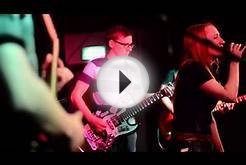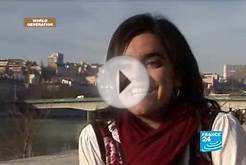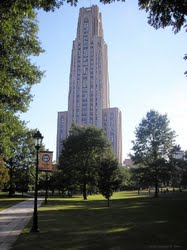The following essay analyzes the scope and reasons for universities to direct support towards refugees following the crisis that has accelerated since last August. The analysis is based on public statements by institutions, media and relevant online resources. The last part relates to the problems resulting from elections won by the conservative national Law and Justice party in October as well as bigger picture after the Paris attacks in November.
On the very day Philip Altbach and Hans de Wit’s published “The Syrian Refugee Crisis – What Can Universities Do?” in University World News, the Polish Ministry of Science and Higher Education organized a press conference addressing the same issue. The University of Warsaw and AGH University of Technology in Cracow announced they will enroll small numbers of refugees, awarding them scholarships and enrolling them in courses in Polish language and culture. The former minister, Lena Kolarska-Bobinska from right-liberal Civic Platform, has asked other higher education institutions to consider joining the movement, and announced a higher education amendement that grants universities more freedom in the recognition of prior learning to facilitate the admission of refugees.
During the following six weeks and the hectic period preceding a new academic year, 22 Polish institutions have commited more than 155 places in language courses, 200 places in degree granting programs (some of them taught in English), 90 places in dormitories and 73 scholarships. This is in a national context of 424 higher education institutions of which only 25% are public—but just one private can be found among the 22.
Given strong anti-refugee sentiments within the society, a rather inhospitable political climate in Central-Eastern Europe (Czech Republik, Slovakia, Hungary), and considering the 6500 refugees that Poland has already agreed to host during high level EU negotiations, this number of university offers is a fair number to start with. But the numbers are rather hazy.
Although the Minister sent a letter asking universities to support the refugees, no single source has compiled the responses. The most comprehensive catalogue has been published on the website of the Conference of Rectors of Academic Schools in Poland (KRASP). The document was released at the end of October with no subsequent information or updates.
The KRASP document lists 19 institutions with a description of the support they will offer. Only four of those issued a public statement on their university’s website: two already mentioned above along with Jagiellonian University in Cracow, and the University of Lodz in central Poland. AGH University of Technology was the only one to announce support for refugees on their Facebook page, only to receive predictably anti-immigrant comments. Only a small number of institutions from KRASP list discussed their support with the media.










 The University of Pittsburgh, commonly referred to as Pitt, is a state-related research university located in Pittsburgh, Pennsylvania, United States. Founded as Pittsburgh Academy in 1787 on what was then the American frontier, Pitt is one of the oldest...
The University of Pittsburgh, commonly referred to as Pitt, is a state-related research university located in Pittsburgh, Pennsylvania, United States. Founded as Pittsburgh Academy in 1787 on what was then the American frontier, Pitt is one of the oldest...